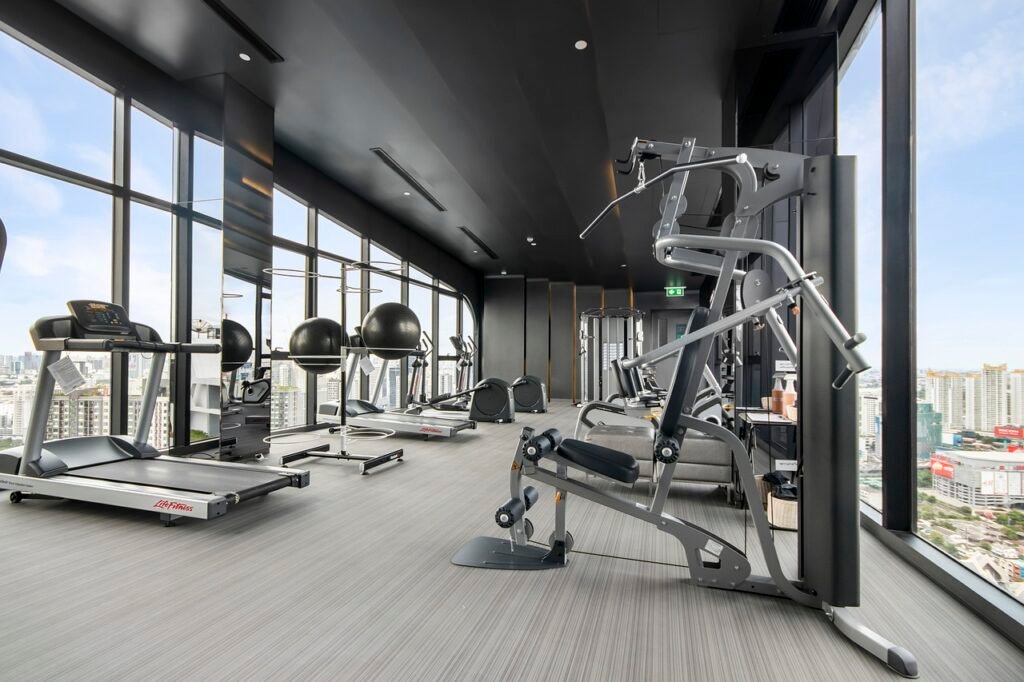What are the side effects of gym?
Introduction:
Embarking on a fitness journey often leads us straight to the gym, a sanctuary for sweat and self-improvement. While the benefits of regular exercise are widely celebrated, it’s essential to acknowledge that hitting the gym may come with its own set of side effects. Understanding these potential downsides is crucial for maintaining a balanced and healthy fitness regimen. Let’s delve into the lesser-known side effects of gym-going and how to mitigate them.

1. Overuse Injuries: Pushing too hard or overtraining in the gym can lead to overuse injuries such as tendonitis, stress fractures, or muscle strains. These injuries often result from repetitive movements without adequate rest and recovery. To prevent overuse injuries, prioritize proper warm-ups, cool-downs, and listen to your body’s signals to avoid pushing beyond your limits.
2. Muscle Imbalances: Focusing solely on certain muscle groups while neglecting others can lead to muscle imbalances. This imbalance not only affects aesthetics but also increases the risk of injury and discomfort. Incorporating a well-rounded workout routine that targets all major muscle groups ensures balanced strength development and reduces the likelihood of imbalances.
3. Joint Pain and Strain: Improper form or excessive weightlifting can place undue stress on joints, leading to joint pain and strain over time. It’s essential to prioritize proper technique, gradually increase weights, and incorporate exercises that support joint health, such as mobility drills and low-impact activities like swimming or cycling.
4. Burnout and Mental Fatigue: The pressure to achieve fitness goals, coupled with the monotony of repetitive workouts, can lead to burnout and mental fatigue. It’s vital to vary your routine, set realistic goals, and prioritize rest days to prevent mental exhaustion. Incorporating activities you enjoy outside the gym can also provide much-needed mental refreshment.
5. Hygiene Concerns: Gyms are communal spaces where sweat and germs abound, increasing the risk of infections such as athlete’s foot, ringworm, or even the common cold. To minimize hygiene-related risks, practice good gym etiquette by wiping down equipment before and after use, wearing clean workout attire, and showering promptly after workouts. Additionally, consider investing in a personal towel and hand sanitizer for added protection.
Conclusion:
While the gym is undeniably a valuable resource for fitness enthusiasts, it’s essential to be aware of its potential side effects and take proactive measures to mitigate them. By prioritizing proper form, balanced workouts, rest, and hygiene, you can enjoy the benefits of the gym while minimizing its negative impacts. Remember, a holistic approach to fitness encompasses not just physical exertion but also mindful self-care.

FAQ
Q: Are there any side effects of going to the gym? A: Yes, like any physical activity, going to the gym can have both positive and negative side effects depending on various factors such as intensity, frequency, and individual health conditions.
Q: What are some common side effects of gym workouts? A: Common side effects may include muscle soreness, fatigue, minor injuries like strains or sprains, dehydration, and fatigue.
Q: Is it normal to feel sore after a workout? A: Yes, feeling sore after a workout, especially if you’re starting a new exercise routine or increasing intensity, is normal. This is often referred to as Delayed Onset Muscle Soreness (DOMS) and typically resolves within a few days.
Q: How can I prevent or alleviate muscle soreness after a workout? A: To reduce muscle soreness, it’s important to warm up properly before exercising, stretch afterward, stay hydrated, and gradually increase the intensity of your workouts over time. Adequate rest and nutrition also play crucial roles in muscle recovery.
Q: Can going to the gym lead to injuries? A: Yes, improper form, overexertion, or pushing yourself too hard without proper rest can increase the risk of injuries such as strains, sprains, or even more serious injuries like fractures. It’s essential to listen to your body, start with lighter weights, and seek guidance from fitness professionals if needed.
Q: Are there any psychological side effects of going to the gym? A: While exercise is generally associated with improved mental well-being, some individuals may experience negative psychological effects such as exercise addiction, body image issues, or stress if they feel pressured to achieve unrealistic fitness goals. It’s important to maintain a balanced approach to exercise and seek support if needed.
Q: Can gym workouts affect my sleep patterns? A: Exercise can improve sleep quality for many people, but intense workouts close to bedtime may disrupt sleep for some individuals. It’s recommended to finish vigorous exercise at least a few hours before bedtime and establish a consistent sleep routine for better overall sleep quality.
Q: Are there any long-term health risks associated with frequent gym attendance? A: Generally, regular exercise is beneficial for long-term health. However, overtraining without adequate rest or recovery can lead to chronic injuries, burnout, and compromised immune function. It’s essential to prioritize balanced exercise routines, proper nutrition, and sufficient rest to mitigate potential risks.
Q: Should I consult a healthcare professional before starting a gym routine? A: It’s advisable, especially if you have any pre-existing medical conditions or concerns about your health. A healthcare professional can provide personalized guidance based on your individual health status and help you establish a safe and effective exercise plan.
Q: How can I minimize the risk of experiencing negative side effects from gym workouts? A: To minimize the risk of negative side effects, prioritize safety by warming up properly, using correct form during exercises, gradually increasing intensity, staying hydrated, getting enough rest, and listening to your body. Additionally, seek guidance from certified fitness professionals to design a suitable workout plan tailored to your goals and abilities.

